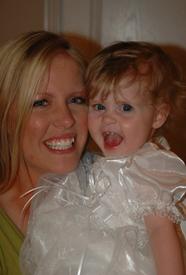MFP vs HRM

kimibunny
Posts: 52
Hello everyone,
My heart rate monitor watch came in today and I used it while biking to do some grocery shopping. I used this site (http://www.shapesense.com/fitness-exercise/calculators/heart-rate-based-calorie-burn-calculator.aspx) and my average HR to calculate the calories I burned on my little bike ride. My problem is that the numbers I get from my HRM and the numbers mfp give me are very far off. And by far off I mean my HRM is telling me I'm burning double the calories MFP estimates. The difference is really bothering me, and I'm really afraid of overeating because of an over estimate. =\ What should I do?
My heart rate monitor watch came in today and I used it while biking to do some grocery shopping. I used this site (http://www.shapesense.com/fitness-exercise/calculators/heart-rate-based-calorie-burn-calculator.aspx) and my average HR to calculate the calories I burned on my little bike ride. My problem is that the numbers I get from my HRM and the numbers mfp give me are very far off. And by far off I mean my HRM is telling me I'm burning double the calories MFP estimates. The difference is really bothering me, and I'm really afraid of overeating because of an over estimate. =\ What should I do?
0
Replies
-
i would lean more towards the heart rate monitor personally. i do not know what kind of equation mfp uses but most hrm's are body specific to you if you input your data, if not at the very least it knows how much your heart is working. if you are worried about over estimating i would enter a number that is ~10% less than the hrm0
-
Use the HRM. MFP is an averaged generalization.0
-
I just got a HRM and used it for the first time today. I also used the nike fitness gadget that I've been using for a while. Low and behold the HRM said 377 calories burned, while the gadget said 481. Yikes. No wonder I've been struggling. So sad.:ohwell:0
-
My HRM does the same thing. Apparently I burned 400 calories but MFP says 333. (Kickboxing 40min) I just stick with what MFP says... It is better to be under calorie than over calorie IMO!
Thanks for posting this topic, I am interested in sticking around and seeing what is said.
Hey and you know I was just thinking. Maybe MFP subtracts the time it takes from what you would of burned? (since naturally you burn about a calorie a minute a day)0 -
I've always found my HRM to show my calories burned to be less than what MFP comes up with. I always stick to my HRM.0
-
my HRM is coming tomorrow! :-) i will stick to what it says since it will be more based on me and not the general public :-)0
-
My HRM does the same thing. Apparently I burned 400 calories but MFP says 333. (Kickboxing 40min) I just stick with what MFP says... It is better to be under calorie than over calorie IMO!
Thanks for posting this topic, I am interested in sticking around and seeing what is said.
Negative. It's better to be accurate. The calorie calculators used in HRMs are more accurate than that of keying in how much time you spent doing something and going with that number. Additionally, you should eat back the calories your burn. If I use the elliptical at the gym with my HRM for 28 minutes, MFP keys in 528 calories...yet knows not how vigorously I worked out. Dont go with an estimator if you can afford an HRM. The HRM, when set to your correct stats (and do keep these updated) calculates your burn with your HR which is NEEDED in any form of MBR0 -
Give us some no. like:
- duration
- weight
-age
-calories
-average speed
-distance
so we can estimate if your HRM is off the normal range or not . We do know that the MFP is.
As a general rule cycling is: 0.28 calories/mile/poundHello everyone,
My heart rate monitor watch came in today and I used it while biking to do some grocery shopping. I used this site () and my average HR to calculate the calories I burned on my little bike ride. My problem is that the numbers I get from my HRM and the numbers mfp give me are very far off. And by far off I mean my HRM is telling me I'm burning double the calories MFP estimates. The difference is really bothering me, and I'm really afraid of overeating because of an over estimate. =\ What should I do?0 -
I use a HRM and it is always way under what MFP says. Ie I do Jillian's 30 day shred in the morning. It is 27 minutes, and with my weight etc, it calculates 370 cals. My HRM says between 205 and 260. I have been taking the average of the two!0
-
Give us some no. like:
- duration
- weight
-age
-calories
-average speed
-distance
so we can estimate if your HRM is off the normal range or not . We do know that the MFP is.
As a general rule cycling is: 0.28 calories/mile/pound
-19 years
-20 mins
-145 lbs
-HRM said 160 for my average, but I used 150.
Calorie estimate was 180. Another site said 167. MFP says 88.
8mph, though the route was hilly and windy with my bike on the highest resistance.0 -
150 according to this so 180 is not that bad.
http://www.stevenscreek.com/goodies/calories.html Very accurate if you put correct the data in.
Try it yourself.
MFP sucks in calculating the calorie expenditure for sports.Give us some no. like:
- duration
- weight
-age
-calories
-average speed
-distance
so we can estimate if your HRM is off the normal range or not . We do know that the MFP is.
As a general rule cycling is: 0.28 calories/mile/pound
-19 years
-20 mins
-145 lbs
-HRM said 160 for my average, but I used 150.
Calorie estimate was 180. Another site said 167. MFP says 88.
8mph, though the route was hilly and windy with my bike on the highest resistance.0 -
Unless MFP is pulling data from your profile. It is missing several data points to complete the calculation for calories burned. Polar and other HRMs have a feature that uses several data points to calculate the calories burned. If you can afford it, try using one with this feature. Or if you are like me and can't afford the more expensive ones, you can use a cheaper one that only gives you the average HR and duration. Then enter the data into an Excel spreadsheet using the below formula.
See below:
Data
A heart monitor can record your average heart rate during exercise and the duration of that exercise session. A bathroom scale can provide your weight. The calorie expenditure formula requires you to provide your heart rate in bpm, the duration of the exercise in minutes, your weight in pounds and your age in years.
Formula
The Journal of Sports Sciences provides a calorie expenditure formula for each gender. Men use the following formula: Calories Burned = [(Age x 0.2017) -- (Weight x 0.09036) + (Heart Rate x 0.6309) -- 55.0969] x Time / 4.184. Women use the following formula: Calories Burned = [(Age x 0.074) -- (Weight x 0.05741) + (Heart Rate x 0.4472) -- 20.4022] x Time / 4.184.
Calculation
Let your age be 32 years and let your weight be 173 lbs. for this example. You're male and your average heart rate during a 37-minute exercise session was 133 bpm. Your calorie expenditure during this exercise session was [(32 x 0.2017) -- (173 x 0.09036) + (133 x 0.6309) -- 55.0969] x 37 / 4.184 = 174 calories.
Read more: http://www.livestrong.com/article/221621-formula-for-calories-burned-during-exercise/#ixzz1jCQKz1RC0 -
The only data that MFP is missing is the HRM according to the formula below. In my opinion if you are so off the charts than better don't do it. More calories burned means more calories from food to eat back and so you see my point. If they are correlated one inaccuracy generates another. What is good though and that actually saves everything is that the calorie deficit proposed by the system from the beginning covers the entire miscalculation.
Many will disagree with me because this eat back calories gives you a good feeling of satisfaction so I do understand it. In the grand schema it works.Unless MFP is pulling data from your profile. It is missing several data points to complete the calculation for calories burned. Polar and other HRMs have a feature that uses several data points to calculate the calories burned. If you can afford it, try using one with this feature. Or if you are like me and can't afford the more expensive ones, you can use a cheaper one that only gives you the average HR and duration. Then enter the data into an Excel spreadsheet using the below formula.
In the grand schema it works.Unless MFP is pulling data from your profile. It is missing several data points to complete the calculation for calories burned. Polar and other HRMs have a feature that uses several data points to calculate the calories burned. If you can afford it, try using one with this feature. Or if you are like me and can't afford the more expensive ones, you can use a cheaper one that only gives you the average HR and duration. Then enter the data into an Excel spreadsheet using the below formula.
See below:
Data
A heart monitor can record your average heart rate during exercise and the duration of that exercise session. A bathroom scale can provide your weight. The calorie expenditure formula requires you to provide your heart rate in bpm, the duration of the exercise in minutes, your weight in pounds and your age in years.
Formula
The Journal of Sports Sciences provides a calorie expenditure formula for each gender. Men use the following formula: Calories Burned = [(Age x 0.2017) -- (Weight x 0.09036) + (Heart Rate x 0.6309) -- 55.0969] x Time / 4.184. Women use the following formula: Calories Burned = [(Age x 0.074) -- (Weight x 0.05741) + (Heart Rate x 0.4472) -- 20.4022] x Time / 4.184.
Calculation
Let your age be 32 years and let your weight be 173 lbs. for this example. You're male and your average heart rate during a 37-minute exercise session was 133 bpm. Your calorie expenditure during this exercise session was [(32 x 0.2017) -- (173 x 0.09036) + (133 x 0.6309) -- 55.0969] x 37 / 4.184 = 174 calories.
Read more:0
This discussion has been closed.
Categories
- All Categories
- 1.4M Health, Wellness and Goals
- 395.4K Introduce Yourself
- 44.1K Getting Started
- 260.7K Health and Weight Loss
- 176.2K Food and Nutrition
- 47.5K Recipes
- 232.7K Fitness and Exercise
- 445 Sleep, Mindfulness and Overall Wellness
- 6.5K Goal: Maintaining Weight
- 8.6K Goal: Gaining Weight and Body Building
- 153.2K Motivation and Support
- 8.2K Challenges
- 1.3K Debate Club
- 96.4K Chit-Chat
- 2.5K Fun and Games
- 4.2K MyFitnessPal Information
- 16 News and Announcements
- 1.3K Feature Suggestions and Ideas
- 2.9K MyFitnessPal Tech Support Questions







